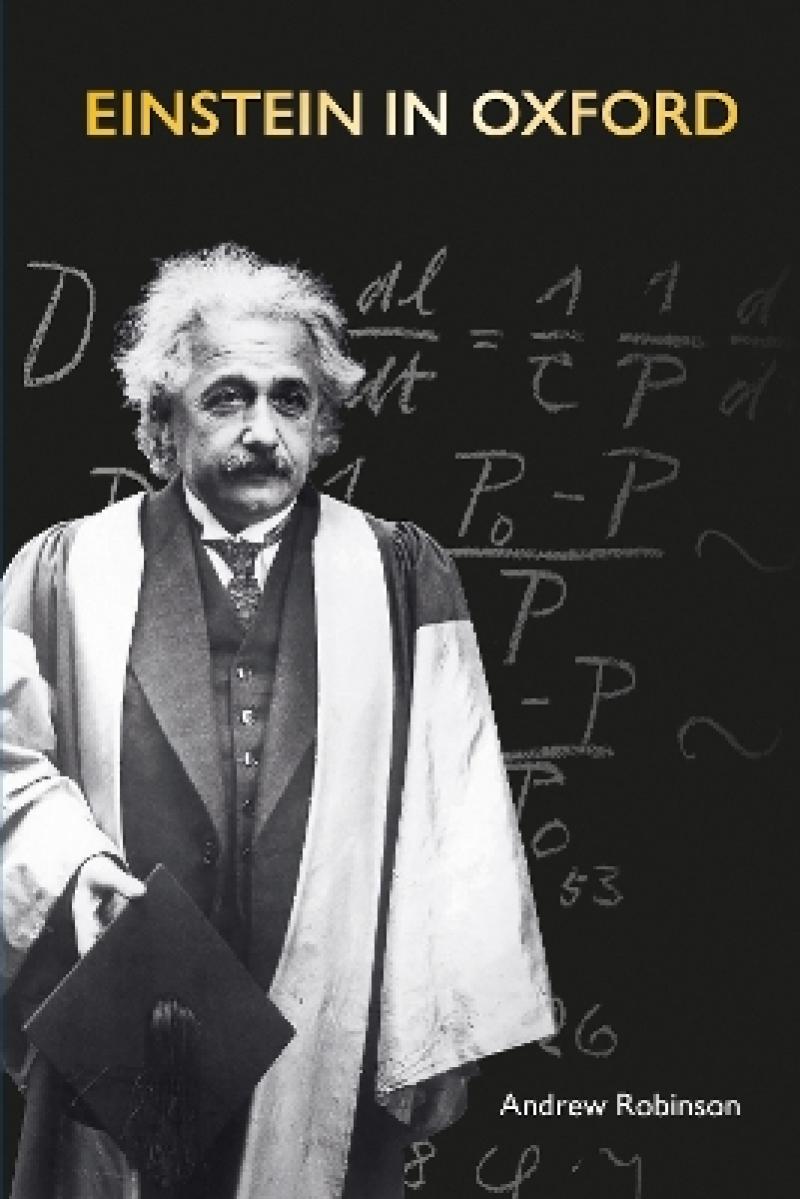<p>‘In Oxford the dons greeted Einstein with an esteem bordering on deification but were mostly bamboozled by relativity. Andrew Robinson’s masterful treatment reveals that Oxford’s colourful idiosyncrasies made a strong impression on Einstein in contrast with his meagre view of the university’s physical scientists.’</p>
- Roger Davies, Emeritus Professor of Astrophysics at the University of Oxford, and Student of Christ Church College, Oxford,
<p>"England has always produced the best physicists," Albert Einstein once said in Berlin in 1925. His high regard for British physics led him to pay three visits to the University of Oxford in the early 1930s, which are described by Andrew Robinson in his charming short book <em>Einstein in Oxford</em>.</p>
- James Dacey, Physics World
Nevertheless, he came back to Oxford in 1932 and again in 1933 – now as a refugee from Nazi Germany. In many ways, the city appealed deeply and revealed him at his most charismatic, as he participated in its science, music and politics, and wandered its streets alone. While staying in college rooms once occupied by the mathematician and writer Lewis Carroll, author of Alice’s Adventures in Wonderland, he wrote a rhymed German poem – now kept in the Bodleian Library – describing himself as an old ‘hermit’ and a roaming ‘barbarian’. His diary entries, alongside observations from the people he met – such as the future novelist William Golding – also reveal his unique sense of humour.
Einstein and 1930s Oxford were exquisitely matched and ill-matched, as the intimate and unfamiliar stories in this book reveal, thereby casting light on why Einstein continues to be the world’s most famous scientist.
‘Einstein’s colourful Oxford visits were not just relativity lectures. Andrew Robinson vividly portrays Einstein at governing body meetings, rowing regattas, numerous concerts, squash matches, Oxford Union debates and “bizarre” college dinners.’
—Sir David Clary, Emeritus Professor of Chemistry at the University of Oxford, former President of Magdalen College, Oxford, and author of Schrödinger in Oxford
‘A vibrant and beautifully written account of Einstein’s interaction with the characters of pre-war Oxford. Andrew Robinson traces the deepening of Einstein’s cosmological thinking against a backdrop of a world that was about to change forever. A triumph.’
—Stephen Blundell, Professor of Physics at the University of Oxford
‘Packed with insight and full of fascinating detail, this book tells us much about Einstein, about Oxford, and still more about a world in flux. It is a miniature masterpiece.’
— William Whyte, Professor of Social and Architectural History at the University of Oxford, and Chairman of the Oxford Preservation Trust


